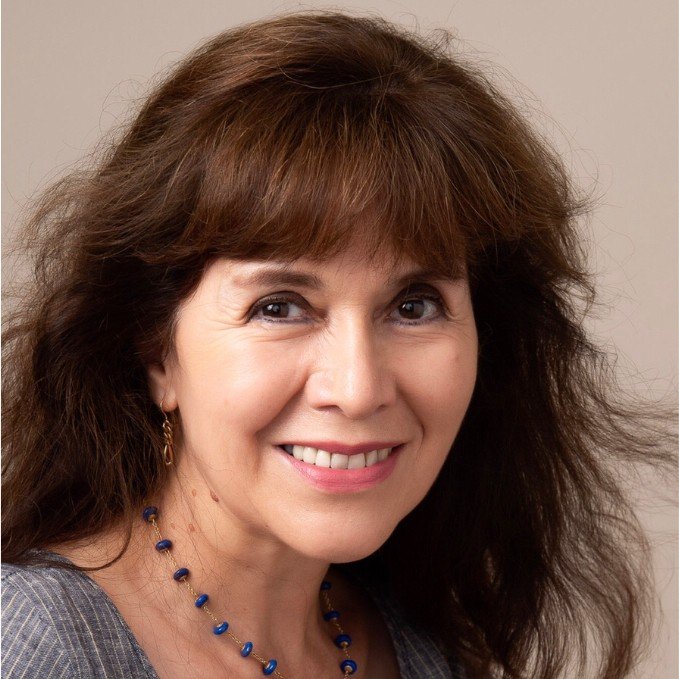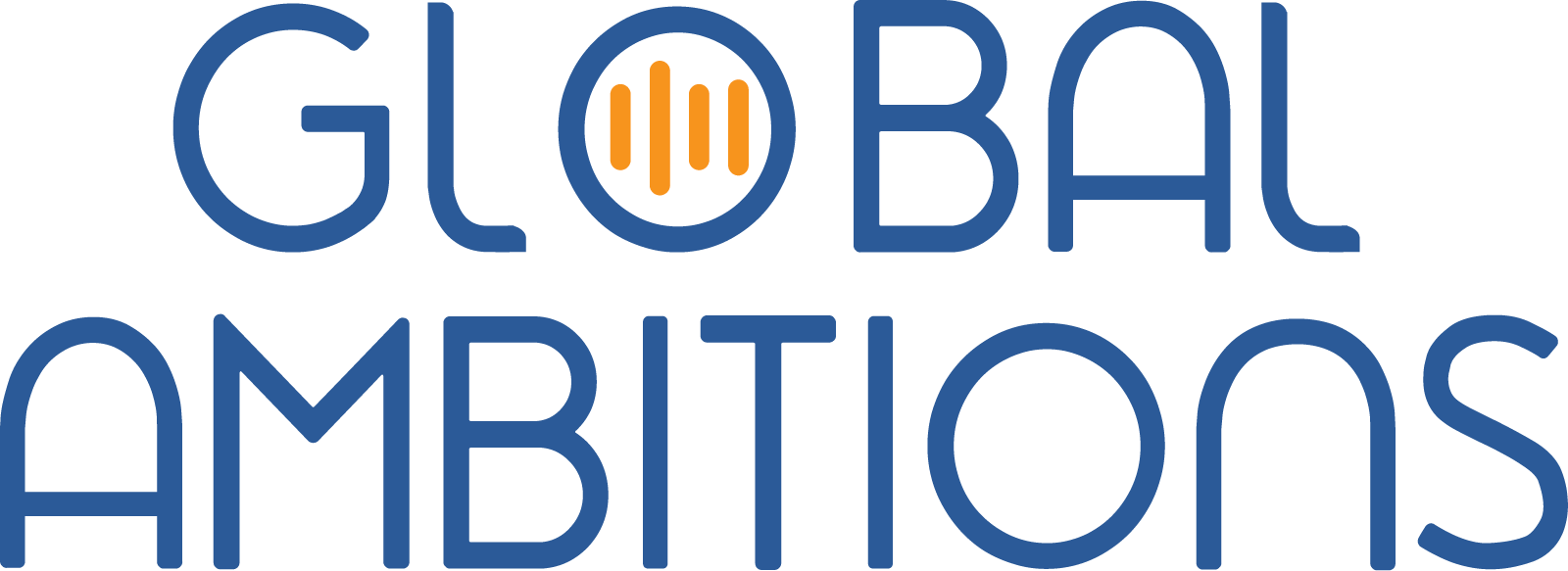In this special episode, Antoine Rey talks to some great talent in the localization industry that are open to new positions.
If you are interested in learning more about these talented people, please contact them directly via their information below.
Antoine Rey
Hi, everyone. My name is Antoine Rey. I’ll be your host today for this episode of Global Ambitions. And today we have a special episode where we offer the Global Ambitions platform to people who have recently been laid off. And as you know, there’s been a lot of people in that situation. And our hope is that we can help raise their profile and generate interest on the platform and potentially find hiring managers and companies out there that will be interested in their profiles. Now I have Maria Jose Salmeron, who’s ex Shopify on the call today, and she’s located in Berlin. Maria, welcome to the program and the floor is yours.
Maria Jose Salmeron
Hi Antoine, Nice to meet you. And thank you for for having me. It’s a pleasure to come here and tell my story, and introduce myself. So, yeah, my name is Maria Jose. I’m based in Berlin, Germany, but I was born and raised in a little region in the southeast of Spain. I was a localization program manager at Shopify.
At Shopify i’ve done absolutely everything. It’s a very fast paced environment and I’ve been working on global marketing initiatives, initiatives coming from for the whole company. So they were very big and complex initiatives that involved a lot of different localization strategies and meeting deadlines that were very important. I’ve also done product localization at Shopify translating the admin and managing projects on that. And I was also part of the… I was collaborating with the technical team that was developing the internal tools at Shopify to kind of develop them in a way that would scale and at the speed and the needs that the localization team had.
So I’ve done also a lot of marketing specific initiatives like multilingual SEO or keyword research. I’ve also worked in the multimedia part of it. I developed the video localization program. There was nothing when I came and together with the rest, of course, with localization, everything takes a village, right? It’s not something that… it’s a very complex thing to do. So the video localization pipelines were something that was created and also images because on marketing, of course, there were always a lot of video campaigns that were peripheral to the main localization projects that we were doing.
So and I was also helping build the team of other localization program managers. I was mentoring the people that were coming and trying to bring them up to speed because we needed help. It was a lot of things, a lot to do.
Antoine Rey
And tell me, were you then working closely with internal stakeholders that owned the various contents that you worked on and communicating with them?
Maria Jose Salmeron
Exactly. Yeah. So I was the point of contact with the internal teams they were coming at me or like at us saying like, Hey, we need this. We are looking into getting this. And then the globalization team was the first people that were in touch. They were assessing the content, trying to minimize the localization problems that we will have down the road so that we would be more efficient and fast and have better outcomes. And then after that, then I was just taking care of like making sure that everything was done, all the deliverables that we needed to give back to the team, trying to understand the needs that they have. Also, sometimes they needed things they didn’t know they needed, right? So a lot of also assessing them and trying to understand it was a lot of stakeholder management and education and that was also a nice part of it because you got to learn a lot from other teams and other localization needs that other teams have. So that was also like trying to find ways to expand the localization strategy and try to serve as much as possible what the business needed at all times.
Antoine Rey
Okay. Well, with such a kind of a versatile background and experience, I’m sure a lot of our listeners will be interested in your profile and hopefully, they’ll get in contact. And what we will do is that we’ll share Maria Jose’s details from LinkedIn onto the platform there. So if you are interested. In talking with Maria, please do reach out directly and thank you.
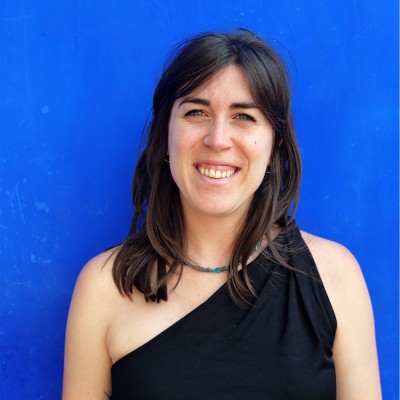
Antoine Rey
Hi, everyone. Now we have Stacy Cho, a localization program manager with experience at Reddit, Stripe, Automation Anywhere, and Cloudflare, to name a few. Stacy, welcome to the program. Tell us about you and the mic is yours.
Stacy Cho
Awesome. Hi everyone. I’m Stacy Cho and I’ve been in translation and localization for a little over eight years now. And when I look back on my career, I think everything really began with my love for writing. I love to read and write, took a lot of creative writing courses throughout high school and college, but then life brought me to Korea and I looked for ways where I could utilize both my Korean language and my English language skills. And that brought me over to translation.
And I was a freelance translator for a few years, but eventually I wanted something more. And I found the localization management program at the Middlebury Institute of International Studies. So I graduated with a master’s degree in localization management. And after graduation I was on the language service provider side for a little while at Translations.com. But then eventually I moved over to companies like you mentioned, like Stripe, Reddit and Automation Anywhere.
And throughout these experiences I learned that my passion is really about being part of a mission that brings products and services to users around the world, making it very accessible. And I believe strongly that localization at its core is all about accessibility. And I love being able to use language to bring, you know, unique experiences that resonate with users. So that’s a little bit about me.
And and a few skills that I think that I could bring to a team. The first one is something I like to call Reining in the Chaos. I once heard someone say that this is what localization is all about and it’s stuck with me. And as we know, you know, localization has so many touchpoints, right? We work with internal teams like product marketing, engineering, as well as external teams, like language service providers, TMS providers, linguists. So I’ve really focused on continuous evangelization and training for these teams, and I really feel that that’s a big driver for success of a localization program.
And most of the teams that I’ve been part of were really at the beginning stages of their localization journey, meaning there was still a lot of work to be done operationally. So I have experience implementing teams, onboarding vendors, setting up quality and vendor management programs, building out documentation and knowledge bases, and most importantly, building processes with internal teams like stakeholder teams that are both repeatable and manageable. And it takes a while to get there, but it’s something that definitely can be done.
And another skill I believe I can bring is sort of like my analytical mindset. I love diving into numbers, whether it’s taking a look at language performance metrics or even budget. I love taking a look at budget spreadsheets and to really take a look at what’s going on under the hood. I’ve found that numbers can surprise you. I’ve had experiences where I discovered, Oh, language X is outperforming English in the market, numbers way higher than expected. Or I’ve discovered some translation workflows were incurring a very surprising amount of costs. So, you know, I’ve learned that numbers help paint a more complete picture of what’s going on. And I love using it to communicate better with other teams or to make decisions for the future.
And finally, I tend to prioritize empathy when I’m approaching my work. And I feel that this is a skill that I’ve learned early on in my career. You know, everyone has different needs and goals, so I really try to put myself in the shoes of the user of stakeholders, of linguists to really understand their unique requirements, their needs. And I found that this goes a long way in helping drive alignment and then achieving the common goals that we have.
At the end of the day, I think, you know, everyone wants to deliver exceptional localized experiences, but I think each team may prioritize or approach the how very differently. So I’ve worked to really bridge that gap and manage different types of expectations throughout my career.
And speaking of my career for the next stage in my career, I’m looking to join a team that is truly passionate about reaching and empowering international users. I’m very passionate about getting the foundations right, so I’m looking to build a localization program or help existing ones do it better or faster. And I’m really excited about all of the possibilities that localization can bring to, you know, all of the amazing products that are out there. And I’m more than ready to join my next team.
Antoine Rey
Great. And for everyone. Stacy is currently located in Seattle and we will share her details with this episode. So feel free to reach out directly to Stacy. Thanks, Stacy.
Stacy Cho
Thank you.
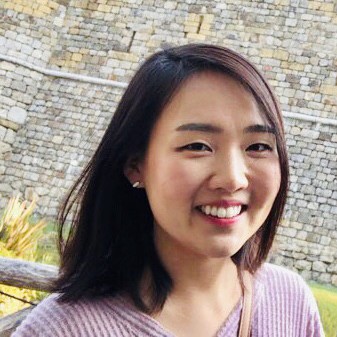
Antoine Rey
And the candidate that I’m talking to is Malachy Moran. Malachy, welcome to the program. Can you introduce yourself and let us know what you’re doing in this localization industry?
Malachy Moran
Sure. Yeah. Hi, Antoine. So my name is Malachy Moran. I’ve been in the localization industry for just over 20 years now, working in a number of different capacities, but mainly from a technical background. So I started off when I studied multimedia in college way back in the day in Waterford in Ireland, and got my first job in Lionbridge as a localization engineer in 2006 and worked in the engineering department there in Dublin for a long time.
A few different roles, so I worked as a engineering team lead. I also worked as the engineering lead for the documentation aspect of the engineering department. So that involved a lot of client onboarding, working with, you know, with the client on which tools to use, which workflows to use. A lot of working with systems, different file types and that kind of thing. I recently worked with the language quality department as a technical PM, so that involved , you know, a whole range of technical aspects to the to the job from anything from, you know, file preparation and analysis right up to working with data analytics, with dashboards, and that kind of thing. So yeah, that’s kind of my history in the, in the industry.
Yeah. So I think what makes me passionate about localization, I think is that, well, coming from a technical background, you know, I think that the language and technology is, is a powerful combination maybe and that, you know, allowing people to access technology and content throughout the world, you know, that’s ultimately the product that we’re all working towards. So I find it an interesting and kind of very fast moving at the moment environment to work in. So that’s the kind of things that, that I’m passionate about.
Antoine Rey
And what are you looking at for your next move then? What are you interested in doing next?
Malachy Moran
Yeah, I think I’d like to… You know, I’ve been working with language service providers for most of my career so far, which, you know, which I’ve loved. And, you know, I’ve worked with some really great people and learned a lot about the industry, particularly from the technical perspective, but also, you know, right across the board. So I’d like to maybe give my skills maybe to the client on the client side to see a little bit closer what localization is doing, what the product is doing on the client side. I think that would be at this stage of my career, that would be something that would really interest me and I think I’d be able to put my skills towards that. And you know, and my experience towards that in a good way.
Antoine Rey
Great. Well, Malachy, thanks very much for coming on the show. You’ve heard here that Malachy is located in London and can work remotely. We’ll put his details from LinkedIn onto our Global Ambitions page. And if you’re interested in talking to Malachy, please reach out directly to him. Thanks, Malachy.
Malachy Moran
Thanks, Antoine.
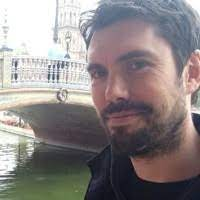
Antoine Rey
Hey Eda. Welcome to this special episode of Global Ambitions.
Eda Ergun Binen
Thank you for having me. I’m thrilled to be here and sharing my perspectives on localization. It’s nice to be here. Thank you. So great.
Antoine Rey
And Eda we will share your details at the end of this recording there. But Eda is located in Monterey and Eda has worked with both the supplier as well as the client side in the localization industry and is currently finishing…. She took a career break and is finishing a master’s in the MIIS Institute in Monterey and looking for a role in the localization industry in the US . Eda, the floor is yours.
Eda Ergun Binen
Thank you. Thank you so much. I would like to talk to you a little bit about myself and I have over ten years of experience in the localization industry and I have worked both on the client and the vendor side as just mentioned. And I would like to see myself as a strategic, innovative leader and I have worked with in various roles such as Turkish language manager at Oracle and translation line manager and project manager at SDL now of course, and also copywriter and creative editor at Apple.
And also my journey began with a strong educational foundation. I have a degree in English language and literature and as well as a degree in translation and localization management at Middlebury Institute of International Studies, which has brought me here to the US to pursue my career goals further. It was during my studies that I have developed a deep appreciation for the power of languages and its ability to connect people and cultures. And localization allows me to bridge the gap between different languages and cultures. It enables businesses to reach a global audience effectively.
And I’m also passionate about the idea that everyone should have access to products, services and information in their own language. And that’s what localization enables us to do. It creates a connection between businesses and its users and target audiences. So it’s a dynamic field and that constantly challenges me to innovate and find creative solutions. And that’s what I love about being in the localization industry.
And I have skills in cross-functional team management and over the years I have developed a strong ability to lead, manage cross-functional teams, and this allows me to effectively collaborate with professionals from diverse backgrounds such as engineers, project managers, linguists and designers. Also, effective communication is really important because clear and effective information is vital in localization, where localization happens across languages, time zones and cultural differences . So I have honed my communication skills to ensure that information flows seamlessly between stakeholders, both internal and external, and whether it’s providing guidance to language vendors or aligning client expectations.
And also another important skill that I bring to the table is strategic decision-making. Because localization projects often involve complex challenges and tight deadlines. And my experience has equipped me with the ability to make critical decisions during challenging times under pressure. And I can assess situations, evaluate risks and develop strategic plans that align with organizational goals. And I think this skill allows me to navigate through obstacles and deliver high-quality, localized content on time and within budget.
And my career aspirations in localization revolve around continuous growth and making a significant impact. I aim to further develop my leadership skills and making significant impact, and I would like to take on more challenging roles that involve driving innovation, shaping localization strategies, and expanding market presence. I also aspire to be at the forefront of industry trends, especially in areas like artificial intelligence, machine translation and emerging new technologies that are transformational to the localization landscape nowadays.
Additionally, I’m committed to fostering diversity and inclusion within the localization industry. I want to advocate for diverse perspectives, promote equal opportunities, and empower representative groups to thrive in the localization field. Ultimately, my goal is to contribute to the global exchange of ideas and information by ensuring that localization plays a crucial role in breaking down language barriers. And yeah, that’s me.
Antoine Rey
Great. Thanks very much, Eda. That’s fantastic. And I think your background and the breadth of your experience both in the technical and retail world, like it’s going to be very interesting hopefully to a number of our listeners. Like I said, we’ll put your details on our site and at the end of this podcast and best of luck with your search.
Eda Ergun Binen
Thank you so much for having me and providing me this stage to introduce myself. It’s been a pleasure talking with you. I enjoyed it a lot.

Antoine Rey
And now we have Gloria Camino, who is working with Al Fresco, and Gloria is located in the UK. Gloria, welcome to the program.
Gloria Camino
Oh, hello, Antoine. Thank you very much for having me in your program. It’s my pleasure to be here. Well, let me tell you about me. I am originally from Peru and I have a degree in architecture. I came to the UK many years ago to do a PhD in semiotics of architecture, and now semiotics of architecture is widely used in analyzing and creating virtual spaces for computer games. However, I didn’t finish my studies due to personal circumstances, and my career gradually transitioned from architecture into localization.
So I have been actively engaged in localization for over 25 years, which amounts to approximately 39,000 hours of continuous work in the industry. Yeah. So if you’ve heard about, you know, mastering a skill, it’s for mastering skill is required. 10,000 hours then, well, I’ve dedicated almost four times that amount to my work.
Antoine Rey
Very good.
Gloria Camino
My initial employment was with SDL International, which later merged with RWS Group. I joined in 1996 and at that time we were just a small team of translators, project managers, desktop people, localization engineers and we all worked very closely because we needed to share our experiences and skills. At that time, localization was still relatively new, particularly in relation to the technology. So during my time at SDL, I gained a lot of knowledge and expertise by managing localization projects for a diverse range of clients that included software, gaming, entertainment, finance, oil industry, commerce.
In 2010 I was headhunted by Alfresco Software. At that time, Alfresco had only been operating for five years, and their content management products had achieved significant success. So it was crucial for them to localize these products, to establish a strong international presence. And well, the opportunity at Alfresco allowed me to apply all my experience that I had gained at SDL, finding cost-effective localization processes, managing teams across the globe, and also I acquire new skills, collaborating with the developers such as accessing and working on GitHub. That was the first for me.
I had the chance also to interact with developers outside Alfresco. These were people from the Alfresco community and also technical writers responsible for the documentation as well as web and marketing teams. So I take a great pride in having contributed to the successful release of high quality alfresco products worldwide. Now, in order to achieve that, at the same time, I had to work and to come up with solutions, I formulated new localization strategies and processes tailored to alfresco needs. I selected the appropriate tools and the optimal localization solutions, and that way I was able to facilitate the company’s global success. This involved offering localized products and the associated content marketing, collateral documentation, etcetera, in something like 150 countries. And of course, it resulted in a substantial increase in revenue for the company.
And then in 2020, Alfresco was acquired by Highland Software, an American company, and there have been significant repercussions.
Now, what ignites my passion in localization? I believe it’s the multifaceted nature of the localization work. I thrive on exploring innovative solutions, and I’m constantly seeking ways to enhance my processes. Well, as you know, the dynamic landscape of the localization technology, which is evolving all the time, and the new advancements in AI, including the use of ChatGPT large language models, et cetera presents an immense array of possibilities for improving localization workflows these days. And the fusion of creativity and technology plays, in my opinion, a pivotal role in addressing novel requirements, proactively identifying risks and achieving greater market penetration and cultural acceptance.
However, I think that localization in its entirety still remains widely misunderstood. I strongly believe that I bring highly valuable soft skills to my workplace and what I consider my strongest skills are resilience. I am a person who has a remarkable ability to adapt to challenging situations. Second is problem solving, and I am a dedicated individual to find solutions. And I think problem solving goes hand in hand with creativity. And that’s when I wear my architect hat. And finally, I believe is my obsession with quality. I believe that a product has to be flawless, otherwise it undermines completely the quality and the value of a product. I was at the XTM live event in London and one I think you were there as well. And I was very impressed by the poster presented by Joseph Kowalski showing over 180 current available tools. So my aspiration is to work either as an employee or consultant with a team of individuals who are enthusiastic about using the latest technologies and are not afraid to embrace new methods and processes that involve AI, augmented reality and ChatGPT, Bard, and so forth. I strongly believe that content has transformed into a dynamic entity constantly created and deprecated. The total of the globalized products reach a staggering amount of something like $33 trillion.
So I aim to work for a company that recognizes the importance of localization as a primary focus rather than considering it a secondary concern. My aspirations revolve around being at the forefront of technology. I want to continue learning, experimenting, applying my knowledge and finding enjoyment in my work.
I have been affected by Highland’s recent restructuring. Currently, I am assisting with the transfer of knowledge. So. I am available, eager and fully prepared to join a team that is either embarking on or has already embarked on the exciting journey towards intelligent localization. So together we can shape the future of globalization.
Antoine Rey
Perfect. That’s great. Thanks very much, Gloria. And we’ll make sure to share your details on our site and so that listeners can reach out to you directly, either via email or via LinkedIn.
Gloria Camino
Thank you. Thank you, Antoine.
